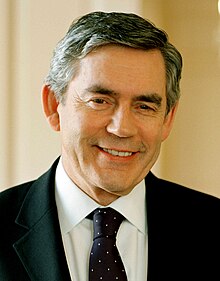Gordon Brown: Reflecting on His Political Legacy

Introduction
Gordon Brown, the former Prime Minister of the United Kingdom, played a pivotal role in shaping the country’s economic policies during a tumultuous period. His leadership from 2007 to 2010 not only defined his political career but also influenced the global response to financial crises and governance issues. Today, as conversations around economic resilience and social equity grow increasingly paramount, Brown’s legacy remains especially relevant, providing insights into effective leadership amid crises.
Brown’s Early Political Career
Born on February 20, 1951, in Giffnock, Scotland, Gordon Brown rose through the ranks of the Labour Party, becoming the Chancellor of the Exchequer in 1997 under Tony Blair’s government. During his decade as Chancellor, he was pivotal in introducing significant economic reforms, including the establishment of the independent Bank of England, and his policies were credited for a prolonged period of economic growth in the UK.
Prime Ministership and Key Events
Transitioning to Prime Minister in 2007, Brown faced immediate challenges, chief among them the global financial crisis that erupted in 2008. His response, which included implementing stimulus measures and bailing out banks, aimed at stabilising the economy, drew both praise and criticism. Brown’s government also took significant steps towards climate change initiatives and social justice, demonstrating a broader impact beyond economic recovery.
Post-Premiership Influence
After stepping down as Prime Minister, Brown remained an influential figure in both UK and international politics. He has been vocal on issues including global health, poverty reduction, and climate change. His leadership continues to resonate as he advocates for reforming global financial systems to create a fairer economy. In recent news, Brown has engaged with United Nations initiatives, pushing for greater equity in the distribution of resources and vaccines during the COVID-19 pandemic.
Conclusion
Gordon Brown’s political career reflects a significant era in British politics, characterized by both challenges and transformative policies. As the UK and the world continue to navigate complex economic and social landscapes, understanding Brown’s approach to governance and crisis management offers valuable lessons. His ongoing advocacy for global cooperation and economic reform underscores the relevance of his leadership today, positioning him as a crucial figure in discussions surrounding future political strategies.









